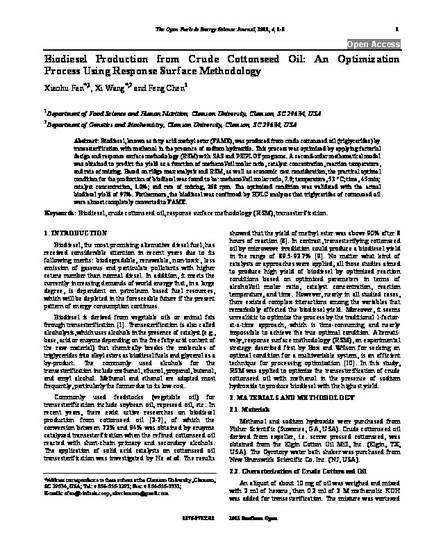
Biodiesel, known as fatty acid methyl ester (FAME), was produced from crude cottonseed oil (triglycerides) by transesterification with methanol in the presence of sodium hydroxide. This process was optimized by applying factorial design and response surface methodology (RSM) with SAS and PSIPLOT programs. A second-order mathematical model was obtained to predict the yield as a function of methanol/oil molar ratio, catalyst concentration, reaction temperature, and rate of mixing. Based on ridge max analysis and RSM, as well as economic cost consideration, the practical optimal condition for the production of biodiesel was found to be: methanol/oil molar ratio, 7.9; temperature, 53 °C; time, 45 min; catalyst concentration, 1.0%; and rate of mixing, 268 rpm. The optimized condition was validated with the actual biodiesel yield of 97%. Furthermore, the biodiesel was confirmed by HPLC analyses that triglycerides of cottonseed oil were almost completely converted to FAME.
